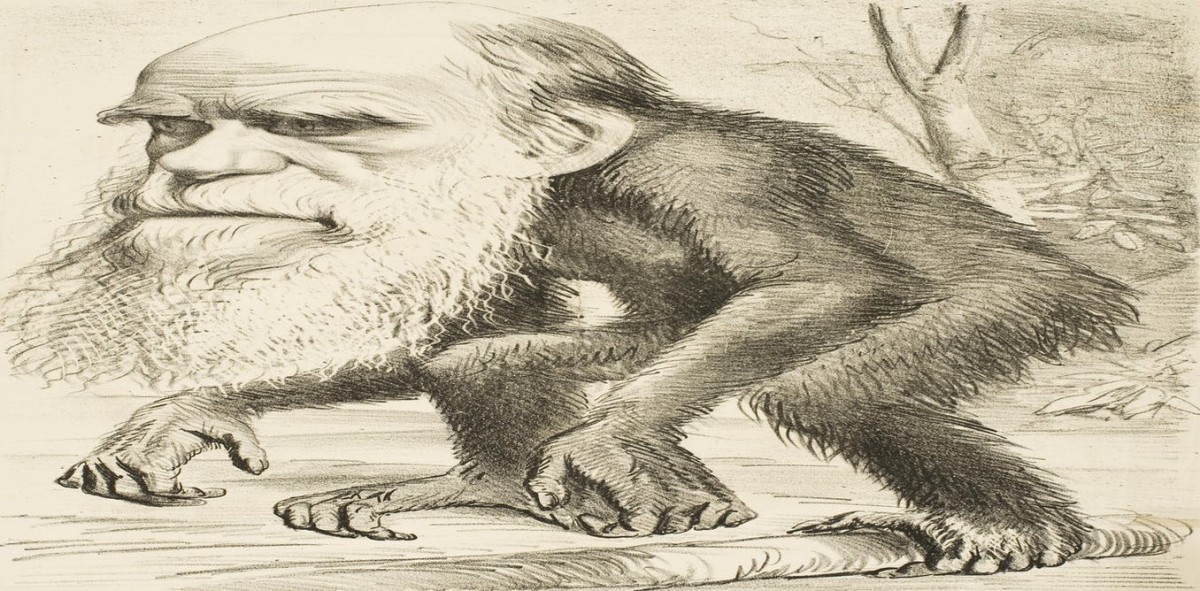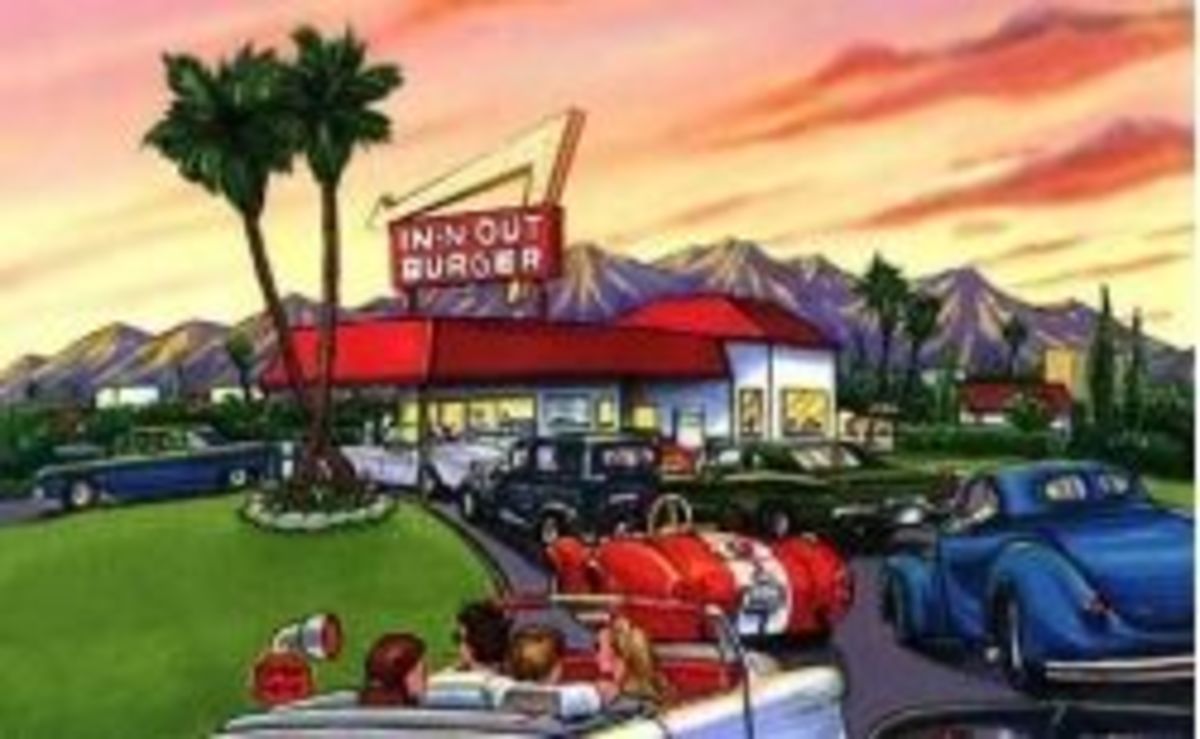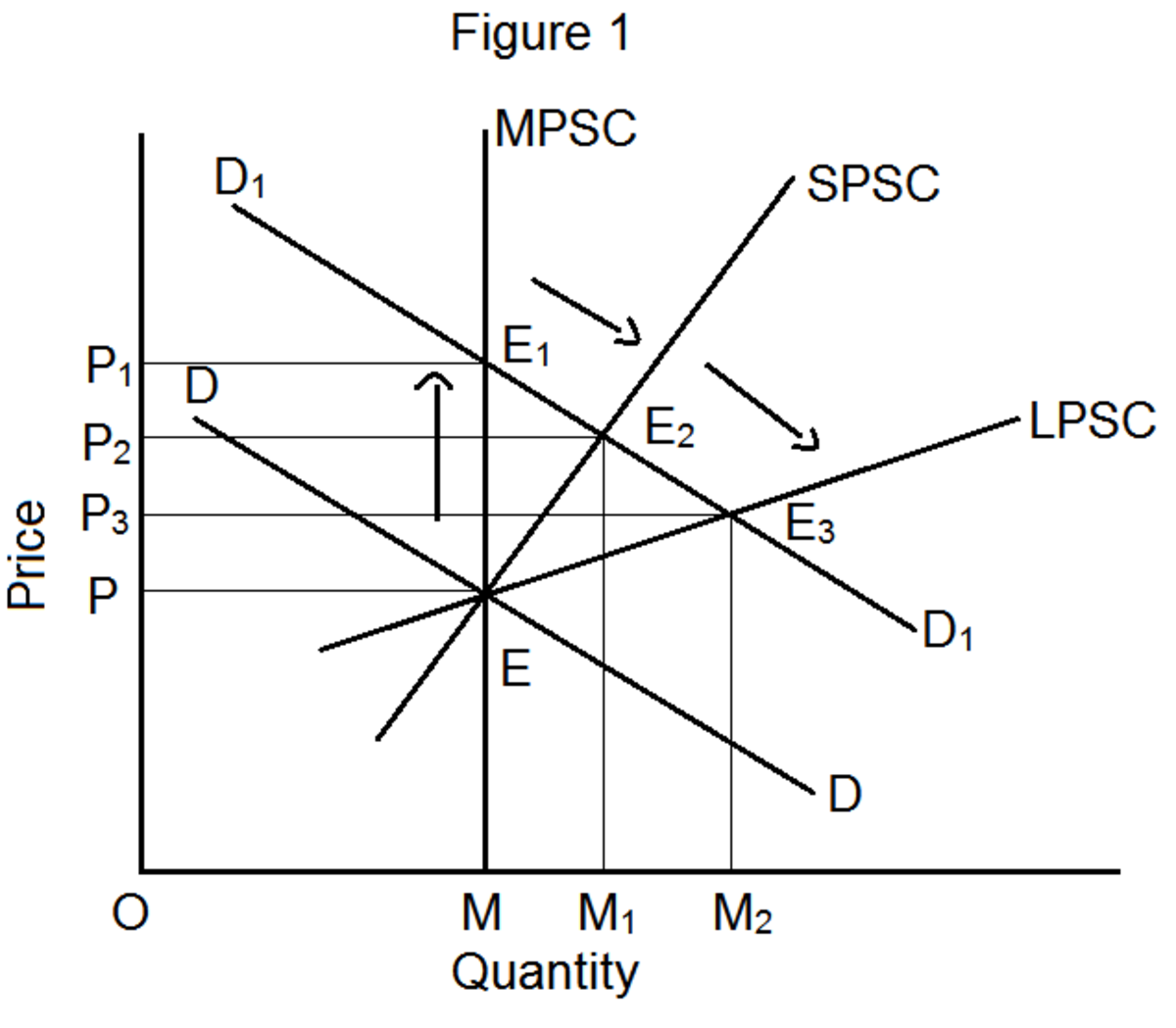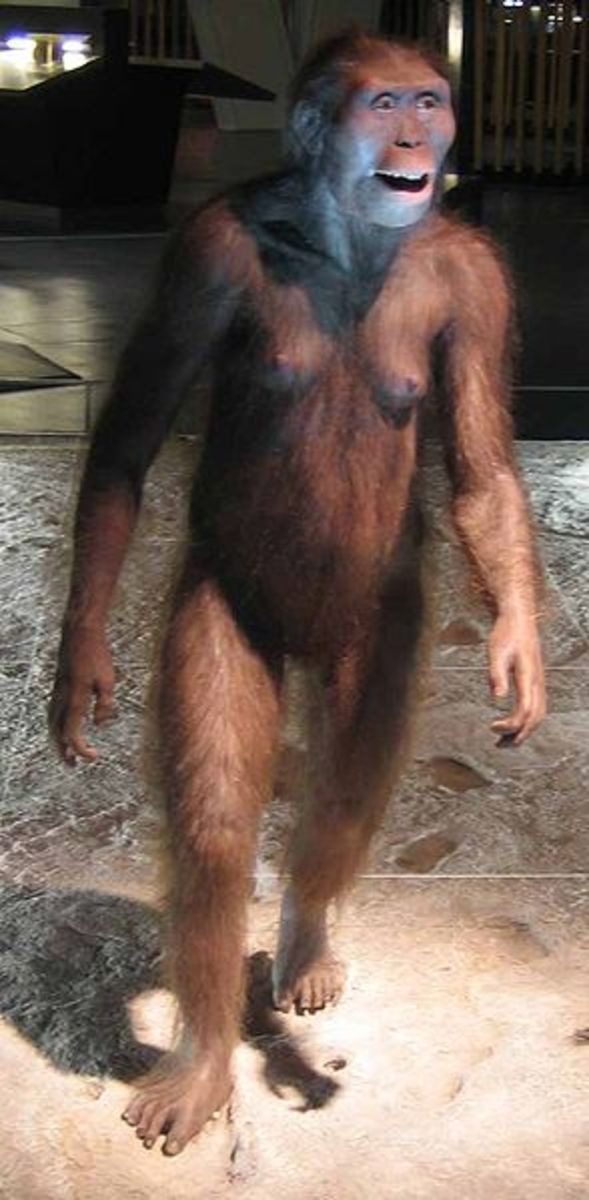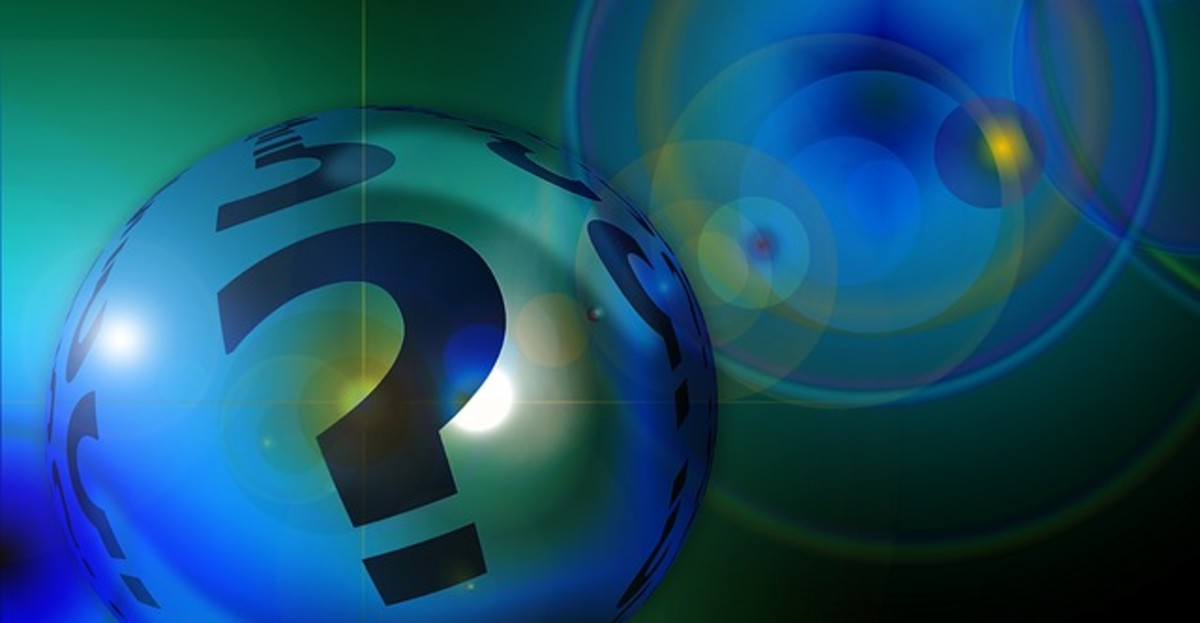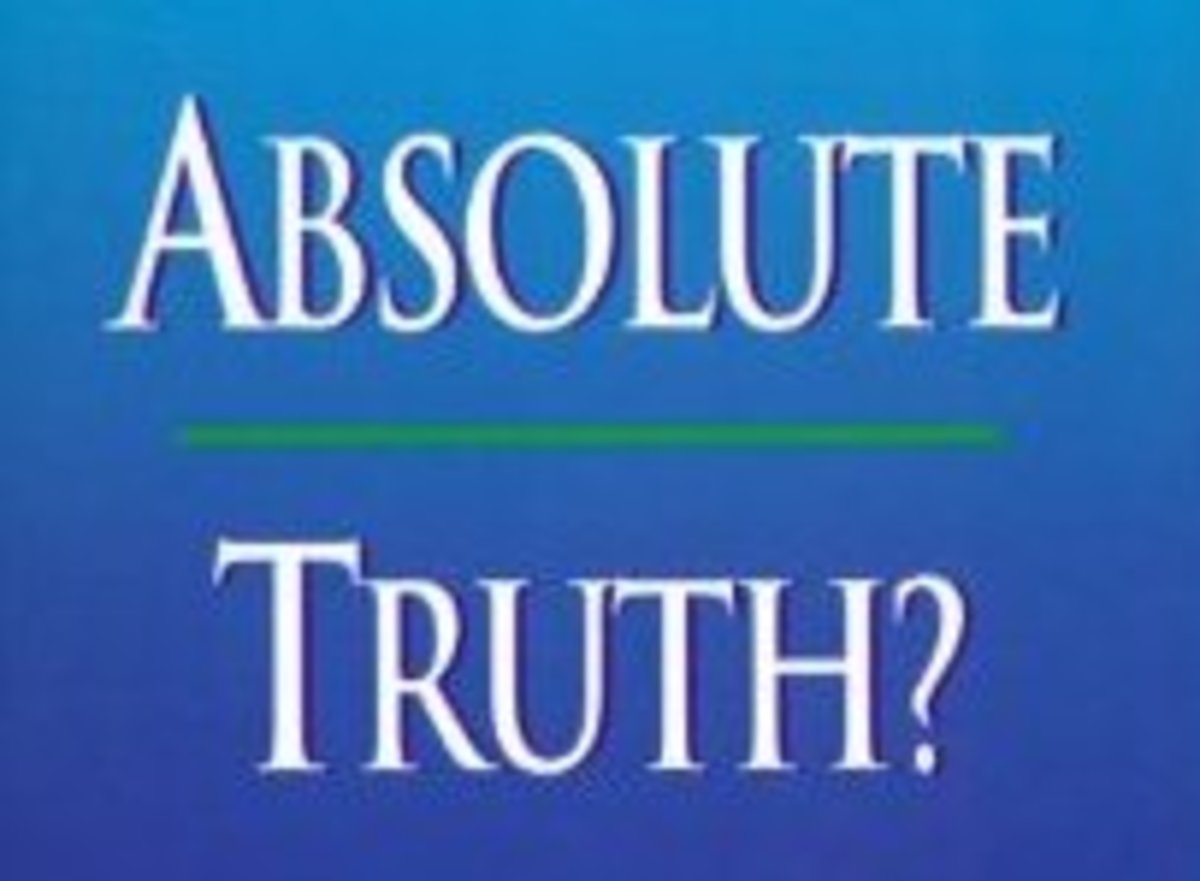Religion and Human Experience: (A Meditation)

Let me thank TheGlobeTrotter for the question concerning religion and human experience. The question he asks, on the question and answer board, is whether or not we believe that religion has made life better: Why is religion needed, if it is needed?
I answered this question on the question and answer board, but, alas, I expressed myself very badly. I want to try to clear that up here, with this, hopefully, relatively short essay.
Now, he may have thought I was being flippant when I used the analogy of hamburgers and onions. I wasn't. I was quite in earnest. It goes like this.
I wonder at the validity of the question itself because it is not at all clear to me that religion and the human experience have ever, ever, ever, ever been separate spheres. In other words, I am not sure that life was going along, in a secular mode, here on Earth before "religion," was, somehow, dropped on us. Do you follow me?
So, I don't believe we have any historical basis of comparison to be able to talk about it. I don't believe there was some clean, secular period in anyone's history which is separate from a later religion-infused period, such that we can begin to make some determination about which era was "better," the one before religion or the one with religion.
This is why I use the analogy of hamburgers and onions. We can talk about whether or not onions make hamburgers better, because hamburger (ground beef patties) and onions are separate things. We have a basis for at least collecting opinions about whether or not onions make hamburgers better, because you can choose to eat your hamburger with onions; and I can choose to eat my hamburger without onions.
Now then, I may choose not to eat my hamburger with onions because I do not like onions on my hamburger (mind you, this does not necessarily even mean that I do not like onions, in and of themselves; I just don't like them on my hamburger). I would have discovered that I do not like onions on my hamburger because of past experience: that is to say, that I tried it previously and found that hamburgers and onions were not to my taste.
Therefore, I, having made the determination that, for me, onions do not make hamburgers better, can choose to forevermore eat my hamburgers without onions. Again, I can do this because hamburgers and onions are plainly separate and different things.
You may choose to have onions on your hamburgers because, from past experience, you had found that you like the two together. To you, the two just work together.
What I am saying, then, when it comes to religion, to even have the basis to ask the question (Does religion make life better?), it would have to be establish-able that religion and human history are, indeed, separate entities like hamburgers and onions.
Question: What nonsense! There is such a thing as atheism, you know. People choose to live the "hamburgers" of their lives without the "onions" of religion.
Answer: Yes, that is true, TheGlobeTrotter, individuals have, do, and presumably, will, choose to be atheists all the time. But individual atheism only has any meaning as set against the theism adhered to by others. You, personally, may be cleansed of religion, but your life, by definition, is not without religion because of your specific opposition to it. Moreover, this is not the question you seemed to have been asking. Your question seemed to encompass the entire sweep of the world and human life as a whole.
In order to establish further coherence to this discussion, we have to agree on some things. Or, at very least, I have to make my own perspective on this discussion perfectly clear.
First of all, I subscribe to evolution as being the most likely way that all life on this world, or any world, develop.
I mention this because, as we try to determine whether or not religion and the human experience are or are not mutually exclusive, separate things---as a basis of beginning to make a determination about whether or not religion makes life better---we must only assign the "human experience" to the period of time in which we, as human beings, took our modern form. It is only the period in which we became fully who and what we are, forward, that is valid for examination.
It would not be fair to cite a period like, say, four hundred thousand years ago, and say that "we" were without religion, because "we" were not fully "us," way back then.
The second thing to say is this: What is religion?
Now I don't want to make a big production out of this. Can we simply agree that religion is any set of rituals, observances, and practices directed toward a being or beings not of this, sensory-tangible world?
Yes?
Good. Now we can wrap this up!
The Human Brain
The human brain weighs about 3.25 pounds---or 1400-1500 grams, for you lovers of the metric system. This is three to four times larger than that of the gorilla or chimpanzee. The human brain seems to have reached the size it is now something like 150,000 to 100,000 years ago (1).
Pause: Again, in trying to determine whether or not religion is intrinsic to the human experience, that is the time period we must deal with---150,000 to 100,000 years ago, not before then, because "we" were not fully who we are today, before this time period.
The brain accounts for 2 percent of our body weight, but requires, perhaps, 20 percent of our need for energy when we are at rest (2).
Notice: "Our" journey of becoming fully who "we" are, as human beings, 150,000 to 100,000 years ago, involved an enhanced energy requirement to feed our greatly enlarged brains. Please keep that in mind.
Now then, in her book The Case for God (2009), by religious scholar Karen Armstrong, we read: "We know that shamanism developed in Africa and Europe during the Paleolithic period and that it spread to Siberia and thence to America and Australia, where the shaman is still the chief religious practitioner among the indigenous hunting peoples" (3).
Hang on...
She continues: "Today there is a remarkable continuity in the descriptions of the shaman's ecstatic flight all the way from Siberia, through the Americas to Tierra del Fuego: he swoons during a public séance and believes that he flies through the air to consult the gods about the location of game. In these traditional societies hunters do not feel that the species are distinct or permanent categories: men can become animals and animals human. Shamans have bird and animal guardians and can converse with the beasts that are revered as messengers of higher powers. The shaman's vision gives meaning to the hunting and killing of animals on which their societies depend" (4).
Now, as fascinating as all of that is, that is not what I wanted to talk about. That is the set up for what I really want to talk about.
Continuing on from Armstrong we read: "The hunters feel profoundly uneasy about slaughtering the beasts who are their friends and patrons, and to assuage this anxiety, they surround the hunt with taboos and prohibitions" (5).
Here we go, That's what I'm talking about.
Finally: "They say that long ago the animals made a covenant with humankind and now a god known as the Animal Master regularly sends flocks from the lower world to be killed on the hunting plains, because the hunters promised to perform the rites that will give them posthumous life" (6).
We are done with quotes. Let's go to the conclusion.
Conclusion
Let us put together the fact of the human brain having reached its present size, 150,000 to 100,000 years ago---together with the Animal Master motif, as described. What do you get?
1. The Animal Master motif seems to have occurred throughout the world at the time when human beings were becoming fully who we are (somewhere in the 150,000 to 100,000 years ago period)---a journey, which, as we discussed, required a huge uptick of energy supply to feed the suddenly, greatly enlarged human brain.
2. Because, the then newly becoming human beings needed more energy, they found themselves under compulsion to kill more animals for protein, in order to fulfill the increased energy requirements of the greatly enlarged brain.
3. The human beings coming into formation, at the time (150,000 to 100,000 years ago) would not have known what was happening to them; they would not have known what had "come over" them.
4. The early, fully-formed humans felt bad about what they were doing. They felt bad that they were suddenly killing a whole lot more animals, their "friends and patrons," after all.
5. The practice of giving the Animal Master his due was born out of the sorrow and compassion the early, fully-formed humans felt for the animals (in greatly increased numbers) they were killing, and under compulsion to kill; and it was born out of what must have been an attempt to come to grips to who and what the early, fully-formed humans were "now."
6. By the way, for the early, fully-formed human hunters to have felt "profoundly uneasy" about killing much greater numbers of other animals, certainly, they must have carried with them a consciousness of having not engaged in such behavior before. So, they must have carried consciousness of a time before they had developed into the modern form.
7. It seems to me that this gives us a strong indication that "religion" and the emergence of human beings in our fully-formed state was virtually simultaneous.
Let me clarify
Question: Why did the hunters feel "profoundly uneasy about slaughtering" the beasts who are their friends and patrons, and so forth?
Answer: Because they are conscious of the fact that they were engaged in a radical break with what they had done in the past---but, of course, they are hunting animals in greatly increased numbers out of compulsion, the demands of their suddenly, greatly enlarged brain. It is a craving that they neither understand nor control.
Question: How is it that the early, newly fully-formed human beings, have knowledge that they are engaged in radically different behavior "now" than they had been "in the past"?
Answer: Historical memory.
Question: What was the source of this "historical memory"?
Answer: As far as I can tell, it would have been the shaman and the shamanic tradition. It would have been the historical memory, provided by the shaman, that showed the people that there was a difference between what they were doing "now" (due to the demands of a suddenly, greatly enlarged brain) and what they had done "in the past" (before humankind had taken "modern" form), and that this difference was "wrong," and if they couldn't control or stop it, they would have to do something to "make it right," somehow, which gives us the ritual around the Animal Master.
So, the shamanic tradition links the people as they came to be "now" (with the modern-sized brain) and what they had been "in the past" (before the brain and therefore humankind, took its modern form).
In order for this linkage to have been operative, what we have defined as religion, has to have been intrinsic to the human condition even before the species took its final form with the last growth/developmental spurt of the brain. That is to say, that religion, as we have defined the term, seems to have been intrinsic to pre-modern humans, depending on how far back you want to go.
The point of all of this, TheGlobeTrotter, is simply that humankind has, as far as we can tell, never been without religion; and moreover, based on what we've looked at in this essay, it went hand-in-hand with the emergence of the species in the modern form---modern in the sense of brain development, and, obviously some time prior.
Therefore, I don't see any way that a determination can be made as to whether or not religion is a life-enhancer or not, in the way that onions are clearly a hamburger enhancer. Religion, as far as can be told (the way I read the data), seems to have been certainly an outgrowth of the human-evolved ability to think symbolically and representationally.
Okay, let's leave it there.
Thank you so much for reading.
References
1. Pagel, Mark. Wired for Culture: Origins of the Human Social Mind. W.W. Norton & Company, 2012. 234, 235
2. ibid, 235
3. Armstrong, Karen. The Case for God. Alfred A. Knopf, 2009. 5
4. ibid
5. ibid, 5-6
6. ibid, 6

